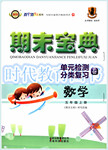题目内容
How much should you save? You may be able to save 100% of your money. Does that mean you should? Not at all. The best way to develop good saving habits is to make saving a regular part of your life, along with spending.
Here is the rule you should remember: save before spending. Whenever some money gets into your hands, from a job or your pocket money or whatever, take your savings out immediately, before spending any of the money. The beauty of this system is that if you take away your savings, you are free to spend the rest.
Here are some more suggestions on how to successfully get into the saving habit from teens. Let’s see!
Tony,13: I put my money in a bank instead of my wallet, so the money is not there. And I have to take an extra step to get it.
Bill,14: When considering a major purchase(购买), wait a week or so, at least. This will help you make sure if you still want it, and the price might go down.
Dick, 13: Carry very little money always. You can’t spend money if you don’t have it. A cake would be nice, but without a dollar, you can’t get it. Little things like that really add up quickly.
Steve,16: I used to be weak when it came to money. I bought something whenever I went into a store. I’m glad I’m not that person now. I taught myself discipline by keeping a $20 bill in my pocket while waking around the mall all day and not buying anything. Now I have no strong wish to buy things when I go into a store. It works for me.
These ideas should help you get started. If you have some questions about anything you’ve read here, or would like to share your ideas about saving money, please write to us
- 1.
How does Tony advise you about saving money?
- A.By keeping money in a bank
- B.By putting money in a wallet
- C.By making it easy to get your money
- D.By buying little things
- A.
- 2.
According to Billy, if you want to buy something expensive, you’d better______.
- A.wait at least a month
- B.make sure it’s necessary
- C.wait until it’s for sale
- D.ask somebody for help
- A.
- 3.
According to the passage, Steve is the person who______.
- A.didn’t carry any money
- B.can’t wait to spend his money now
- C.didn’t use to buy anything in a store
- D.doesn’t spend money quickly and carelessly now
- A.
- 4.
Where is the passage most probably from?
- A.A dictionary
- B.The instructions
- C.A newspaper
- D.An advertisement
- A.
- 5.
The writer wrote the passage in order to ask teens to______.
- A.make major purchases
- B.save 100% of their money
- C.spend all their savings regularly
- D.save money regularly as well as spending
- A.
试题分析:这篇短文主要通过几个中学生之口给我们讲述了几个如何节约花钱的方法。
1.根据Tony,13: I put my money in a bank instead of my wallet, so the money is not there.描述,可知选A。
2.根据Bill,14: When considering a major purchase(购买), wait a week or so, at least. This will help you make sure if you still want it,描述,可知选B。
3.根据Steve,16: I used to be …… Now I have no strong wish to buy things when I go into a store. It works for me.描述,可知选D。
4.这篇短文主要介绍了几个中学生关于如何节约花钱的方法,故最有可能出自一篇报纸。选C。
5.根据第一段The best way to develop good saving habits is to make saving a regular part of your life, along with spending.及下文描述,可知选D。
考点:关于如何节约花钱的说明文阅读
点评:本文浅显易懂,层次分明,学生很容易把握文章中心内容。答题中注意带着问题阅读短文,一般就能顺利找出答题依据。对于不能直接找到根据的问题注意联系上下文,根据短文中心总结出正确答案。

 期末宝典单元检测分类复习卷系列答案
期末宝典单元检测分类复习卷系列答案根据对话内容,将方框内符合对话情境的句子抄写在对话空白处,使对话恢复完整。选项中有两项是多余的。
(X=Xiao Lin; L=Lin Xing; S=Saleswoman)
X: Hello, Lin Xing! Where are you going?
L: 1.
X: To De Lin supermarket? 2.
L: Don’t you know what the date is tomorrow?
X: Oh, I remember! Tomorrow is Women’s Day!
L: Yes, you are r ight!
I’m going to buy a gift for my mother.
ight!
I’m going to buy a gift for my mother.
3.
X: Of course, I’d like to. Let’s go to the supermarket together.
(At the shop)
X: 4.
L: I think scarves are the best ones.
X: That’s great! I agree
L: How about these ones?
X: They’re beautiful.
X and L: 5.
S: 80yuan for each. They’re 160yuan in all.
X and L: Here you are
|
How much are they? Would you like to get a gift for your mother? To De Lin supermarket. Can you go with me? What kind of gifts should we buy? What are you going to do there. Can I help you? |